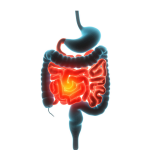Ryan Bradley, ND, MPH; Bill Walter, LMP, ND (Cand. 2009)
Introduction
I recall my first year in naturopathic medical school when I slinked into the cafeteria, head hung low, feeling guilty about my nervous anticipation of those first few sips of strong, dark brew passing my lips – like anticipating a first kiss – every morning. Concerns about “adrenal fatigue” and cardiovascular effects have led some naturopathic physicians to counsel abstention from the psychoactive substances most commonly used in our society, including coffee, alcohol, and sugar (unless we are at an AANP convention). With due respect to our puritanical traditions, it is increasingly important that we understand the evidentiary basis for the dietary counsel we offer our patients as our understanding of the health effects of these substances evolves. While we may have learned in our studies that coffee “interferes with adrenal function” and is a “strong pro-oxidant” (Wilson, 2002), and should thus be avoided, there is mounting evidence that coffee may in fact be a beneficial part of our diet. This paper is intended to review the somewhat contradictory recent research on the metabolic effects of coffee consumption, and will also include a brief discussion of the other well-characterized health effects of coffee. We’ll discuss the observational data on coffee’s effect on the risk of type 2 diabetes mellitus, contrast these with recent clinical trials that seem to contradict these observations, and consider coffee’s effects on cardiometabolic problems that are common in patients with type 2 diabetes. Throughout the discussion, we will consider some of the major constituents active in this beverage and how they affect human health.
Coffee: A Complex Botanical Infusion
Our herbal traditions maintain that a plant medicine is more than its most active constituent, and this holds true for coffee as well. While caffeine, a methylxanthine, is a major constituent, coffee contains over 600 other organic compounds, notably the diterpenes kahweol and cafestol and the antioxidant phenols caffeic acid, quinic acid, and the ester of these, chlorogenic acid. In fact, coffee is a major dietary source of antioxidants (Svilaas et al.,2004; Pulido et al., 2003). Coffee is also a notable source of micronutrients, containing significant amounts of niacin, potassium, and magnesium (Dórea and da Costa, 2005). Indeed, to believe that coffee is synonymous with caffeine is a gross mischaracterization of this complex, botanical matrix of deliciously evolved components. And not unlike research on other botanicals, precision is required in the interpretation of research to separate the effects of coffee constituents from coffee itself.
Effects on Type 2 Diabetes Risk, Observational Evidence
Beginning with a notable Dutch report in 2002 (van Dam and Feskens, 2002), large observational studies have repeatedly shown a significant inverse association between regular coffee consumption and the risk of type 2 diabetes. This body of work was analyzed in a 2005 JAMA meta-analysis (van Dam and Hu, 2005), which found that coffee consumption did indeed seem to be associated with a reduced risk of type 2 diabetes. The meta-analysis examined nine cohort studies (N=193,473, follow-up between 6-20 years) and five cross-sectional studies (N=17,438), and found that when compared to those individuals drinking relatively small amounts of coffee (less than 2 cups/day), those drinking 4 to 6 cups had a 28% lower risk of type 2 diabetes, while those drinking more than 7 cups/day had a 35% reduction in risk. Variations were noted between region (U.S. vs. Europe), sex, and whether the participant was obese or not. Regardless of these stratifications, all groups still had a significantly lower risk of type 2 diabetes with greater coffee consumption. Assessment of publication bias suggests that 62 negative studies would be needed to reduce these observations to insignificance.
While clearly a representing strong support for the position that, at least observationally, coffee seems to be protective against type 2 diabetes, there are some caveats that should be kept in mind. Most of these findings are based on populations consuming primarily paper-filtered coffee. Few studies have examined whether unfiltered coffee (ie, pot-boiled, Greek/Turkish style, French press) or instant coffee offers the same protection, and results are unclear (Tuomilehto et al., 2004; Reunanen et al., 2003). Similarly, these studies do not typically take into account the addition of sweeteners or lighteners (milk, cream, soy milk, etc). Finally, coffee consumption was believed to be mostly caffeinated coffee (van Dam and Feskens, 2002; Salazar-Martinez et al., 2004), so the effects of decaffeinated coffee consumption have not been fully explored.
Further refining the observations of the JAMA meta-analysis, an interesting prospective trial (N=7006, followed for 8.4 years) of survey participants in the United States (Greenberg et al., 2005) suggests that ground (but not instant) coffee only offered a reduced risk of type 2 diabetes in people under the age of 60 who had also lost weight during the study period. The reduced risk of type 2 diabetes was also found in drinkers of caffeinated tea and ground decaffeinated coffee, and held up even after total caffeine consumption was controlled for. Further, in subjects under 60 years of age, weight gain was associated with increased risk of type 2 diabetes, and consumption of caffeinated beverages did not significantly alter this risk. Given the limitations of this trial, firm conclusions are challenging, but the authors suggest that several compounds in coffee and tea (including, but not limited to caffeine) may assist with weight loss efforts, and that this may account for much of the reduced risk of type 2 diabetes.
Effects on Blood Glucose Regulation, Experimental Evidence
The mechanisms underlying the possible protective effects of coffee are still unknown. Studies of caffeine as an isolated compound regularly show deleterious effects on glycemic control (Lane et al., 2008; MacKenzie et al., 2007). Given the seeming contradiction between the impaired glycemic control from caffeine and the observation of reduced type 2 diabetes risk with coffee consumption, several recent clinical trials have sought to separate the effects of coffee consumption vs. caffeine consumption on glycemic control.
A recent double-blind randomized trial (n=11 non-diabetic males), compared the effects of caffeine and coffee on glucose tolerance (Battram et al., 2006). Each subject served as their own control, and on study days consumed either caffeine (in pill form), placebo (pill), caffeinated coffee, or decaffeinated coffee 60 minutes prior to a two-hour oral glucose tolerance test (OGTT). Glucose, insulin, C-peptide, and insulin sensitivity were measured at baseline, and at several other intervals, in order to calculate an area under the curve (AUC) for glucose and insulin. Results showed that caffeine induced the highest AUC for glucose, followed by placebo, caffeinated coffee, and decaffeinated coffee. AUC for insulin and C-peptide followed a slightly different pattern (again, from high to low AUC): Caffeine, caffeinated coffee, placebo, and decaffeinated coffee. The insulin-sensitivity index, a calculated variable, showed the highest value with decaffeinated coffee, followed by placebo, caffeinated coffee, and then caffeine, respectively. In other words, caffeine outside of the matrix of coffee, led to deleterious effects on glucose metabolism, and the authors surmise that some components of coffee may be responsible for attenuating these negative effects of the single alkaloid. Especially surprising is that decaffeinated coffee had a better glycemic effect than even placebo, lending further credence to this hypothesis.
A similar study (Lane et al., 2007) compared decaffeinated coffee with caffeine-enhanced decaffeinated coffee, followed by a mixed-meal tolerance test (MMTT). Non-diabetic participants (n=20, 11 females) in this double-blind trial also served as their controls. AUC for glucose and insulin was higher after caffeine-enhanced decaffeinated coffee by 28% and 19%, respectively, when compared to the decaffeinated coffee. The study’s authors conclude that the constituents of coffee do not prevent the effects of caffeine on glycemic control, but the study is limited in not having a true (non-coffee) placebo. Another major limitation of this trial, of course, is that they did not include a true caffeinated coffee, only re-caffeinated decaffeinated coffee. We might expect that caffeine outside its normal matrix in caffeinated coffee to have a different effect. Also, the low number of participants is always a concern.
In an effort to emulate real life, another group (Moisey et al., 2008) compared the effects of caffeinated coffee or decaffeinated coffee when consumed one hour before “typical” meals in non-diabetic males (n=10). The meals consisted of milk with one of two different breakfast cereals, matched by carbohydrate content but with either a high or low glycemic index (GI). Similar to the Battram trial, the AUC for glucose, insulin, and C-peptide was higher with caffeinated coffee, and insulin sensitivity was higher with decaffeinated coffee; results held true for both meals, though the results were typically more pronounced with the low GI meal. The authors note that “although the actual GI for the low GI cereal was 50% of that of the high GI cereal, the apparent [emphasis added] GI for the low GI cereal actually exceeded that of the high GI cereal, when the former was associated with caffeinated coffee consumption.” This suggests that caffeinated coffee may impact the functional GI of meals, possible by reducing transit time in the gastrointestinal tract.
Complicating matters, yet another trial (Louie et al., 2008) compared the effects on glycemic control of caffeinated coffee, decaffeinated coffee, caffeinated coffee and sucrose, sucrose, black tea, hot water, and water in eight non-diabetic adults. This small trial found that, consistent with the above trials, caffeinated coffee increased postprandial glycemia (per AUC-glucose), caffeinated coffee with sucrose decreased post-prandial glycemia, while tea, sucrose, water, and decaffeinated coffee had no significant effect. While the findings are yet to be explained, the novelty of the study – looking at the effects of sweeteners added to coffee – may offer some partial explanation for the paradox observed between observational data and clinical trials.
These trials strongly suggest that other constituents of coffee may help mitigate the effects of caffeine, but also suggest that caffeinated coffee still may have deleterious effects on post-prandial glucose regulation. These findings make it difficult to reconcile the apparently protective effects of coffee found in observational studies. One possibility is that the acute effects of short-term coffee and/or caffeine consumption are muted with chronic use. Caffeine’s tendency to increase epinephrine (a possible mechanism for the observed hyperglycemia) is known to disappear within seven days of regular use (Robertson et al., 1981), and it may be that whatever dysglycemic effects that caffeine or coffee create in a laboratory setting are similarly muted with regular consumption. Also, the observation of type 2 diabetes protection may be related to other key constituents. The polyphenol, chlorogenic acid, is thought to inhibit intestinal glucose absorption (Johnston et al., 2003; Thom, 2007) and inhibit hepatic glycogenolysis (Arion et al., 1997). When compared to decaffeinated coffee, both chlorogenic acid and trigonelline (another constituent), seemed to independently reduce glucose and insulin concentrations (van Dijk et al., 2009). Coffee’s effects on diabetes risk may also be related to an overall reduction in oxidative stress, which itself may be a risk factor for the development of type 2 diabetes (Ceriello and Motz, 2004). Five cups of coffee per day (in healthy, non-diabetic participants) increased plasma glutathione concentration in one trial (Esposito et al., 2003), and did not significantly increase oxidative stress, as measured by plasma hydroperoxide levels. Magnesium, another constituent in coffee, is considered to have potentially beneficial effects on blood glucose, including improved insulin sensitivity (de Valk, 1999). Finally, it should be noted that observational data can never determine causality, and the observational findings may be explained by coffee drinkers substituting coffee for alternative beverages, including sodas. Regardless, compared to other alternatives, there is little evidence, in large samples from the general population, that coffee intake has deleterious effects on diabetes risk.
Effects on Cardiovascular Disease Risk
Apart from any effects of coffee on glycemic control, it should be remembered that many patients with diabetes frequently have related cardiometabolic conditions. Fortunately, it seems that coffee consumption does not appear to negatively impact cardiovascular disease (CVD) risk, including risk of CVD-related mortality in either men or women with type 2 diabetes (Bidel et al., 2006; Zhang W et al., 2009; Zhang WL et al., 2009). While caffeine is known to transiently increase blood pressure (Noordzij et al., 2005), habitual coffee intake probably does not raise a person’s blood pressure by more than 2 mmHg (Geleijnse, 2008). In an 8-week randomized cross-over trial, serum lipids were elevated by cafestol and kahweol, diterpenes present in boiled coffee (Mensink et al., 1995). In another study, a prospective, open-label, randomized crossover, coffee consumed prior to drawing blood samples did not clinically impact fasting serum lipids (Cheung et al., 2005). Even chronic kidney disease, a late-stage consequence of type 2 diabetes, does not seem to be significantly impacted by moderate coffee consumption (Bolignano et al., 2007).
Additional Health Effects and Impact of Overall Mortality
It is well beyond the scope of this paper to discuss other known or potential benefits of coffee, but we would be remiss in our duties if we did not highlight recent meta-analyses suggesting that coffee is largely protective against many forms of cancer. Protective associations have been noted between coffee consumption and hepatocellular carcinoma (Bravi et al., 2007), colon cancer (Je et al., 2009), and endometrial cancer (Bravi et al., 2009); neutral effects have been observed on gastric cancer (Botelho et al., 2006), and only a borderline significant effect on breast cancer (Tang et al., 2009). Also, the Nurses’ Health Study and the Health Professionals Follow-Up Study, which followed 86,214 women and 41,736 men, respectively, for up to 24 years, demonstrated that regular coffee consumption showed a slight, dose-dependent reduction in total overall mortality (Lopez-Garcia et al., 2008).
Conclusion
Coffee is not the devil in disguise, but rather a complex, botanical matrix whose effects are impacted by the method of preparation, and likely the concentration of key constituents in the resulting infusion. (Sound like any other botanicals you know of?) While the acute effects of caffeinated coffee may be problematic in short trials, long-term observational data suggests that it is an overall benefit in staving off type 2 diabetes mellitus. In addition, as more precise research is conducted, we are beginning to learn that individual coffee constituents have beneficial actions on glucose regulation. Combined with the minimal effects on chronic cardiovascular pathologies, resulting increases in antioxidant capacity, and the apparent protection coffee offers for numerous cancers, there is no strong case for getting most people to give up their morning eye-opener. In the continuum of importance, emphasizing coffee abstention may not be the best use of our clinical time or energy, and in fact, may do more harm to our rapport with patients, than it will ultimately benefit the health of our patients. (Try taking mine away and see if I ever talk to you again!) Until more evidence becomes available to the contrary, enjoy your first kiss every morning — guilt free!
 Ryan Bradley, ND, MPH is a research assistant professor at Bastyr University, and directs the Diabetes & Cardiovascular Wellness Program at the Bastyr Center for Natural Health.
Ryan Bradley, ND, MPH is a research assistant professor at Bastyr University, and directs the Diabetes & Cardiovascular Wellness Program at the Bastyr Center for Natural Health.
 Bill Walter, LMP, ND (Cand. 2009) recently completed his studies at Bastyr University, and will be passing the NPLEX in August 2009. He will be starting his residency at the Bastyr Center for Natural Health in September 2009. Areas of interest include mind-body medicine, cardiometabolic risk reduction, and integrative rheumatology.
Bill Walter, LMP, ND (Cand. 2009) recently completed his studies at Bastyr University, and will be passing the NPLEX in August 2009. He will be starting his residency at the Bastyr Center for Natural Health in September 2009. Areas of interest include mind-body medicine, cardiometabolic risk reduction, and integrative rheumatology.
References
Arion WJ et al: Chlorogenic acid and hydroxynitrobenzaldehyde: new inhibitors of hepatic glucose 6-phosphatase. Arch Biochem Biophys 339(2):315-22, Mar 15 1997.
Battram DS et al: The glucose intolerance induced by caffeinated coffee ingestion is less pronounced than that due to alkaloid caffeine in men. J Nutr 136(5):1276-80, May 2006.
Bidel S et al: Coffee consumption and risk of total and cardiovascular mortality among patients with type 2 diabetes. Diabetologia 49(11):2618-26, Nov 2006.
Bolignano D et al: Caffeine and the kidney: what evidence right now? J Ren Nutr 17(4):225-34, Jul 2007.
Botelho F et al: Coffee and gastric cancer: systematic review and meta-analysis. Cad Saude Publica 22(5):889-900, May 2006.
Bravi F et al: Coffee drinking and hepatocellular carcinoma risk: a meta-analysis.
Hepatology 46(2):430-5, Aug 2007.
Bravi F et al: Coffee drinking and endometrial cancer risk: a metaanalysis of observational studies. Am J Obstet Gynecol 200(2):130-5, Feb 2009.
Ceriello A, Motz E: Is oxidative stress the pathogenic mechanism underlying insulin resistance, diabetes, and cardiovascular disease? The common soil hypothesis revisited. Arterioscler Thromb Vasc Biol 24(5):816-23, May 2004.
Cheung RJ et al: Acute coffee ingestion does not affect LDL cholesterol level. Ann Pharmacother 39(7-8):1209-13, Jul-Aug 2005.
de Valk HW: Magnesium in diabetes mellitus. Neth J Med 54(4):139-46, Apr 1999.
Dórea JG, da Costa TH: Is coffee a functional food? Br J Nutr 93(6):773-82, Jun 2005.
Esposito F et al: Moderate coffee consumption increases plasma glutathione but not homocysteine in healthy subjects. Aliment Pharmacol Ther 17(4):595-601, Feb 15 2003.
Geleijnse JM. Habitual coffee consumption and blood pressure: an
epidemiological perspective. Vasc Health Risk Manag 4(5):963-70, 2008.
Greenberg JA et al: Coffee, tea and diabetes: the role of weight loss and caffeine. Int J Obes (Lond) 29(9):1121-9, Sep 2005.
Je Y et al: Coffee consumption and risk of colorectal cancer: a systematic review and meta-analysis of prospective cohort studies. Int J Cancer 124(7):1662-8, Apr 1 2009.
Johnston KL et al: Coffee acutely modifies gastrointestinal hormone secretion and glucose tolerance in humans: glycemic effects of chlorogenic acid and caffeine. Am J Clin Nutr 78(4):728-33, Oct 2003.
Lane JD et al: Exaggeration of postprandial hyperglycemia in patients with type 2 diabetes by administration of caffeine in coffee. Endocr Pract 13(3):239-43, May-Jun 2007.
Lane JD et al: Caffeine increases ambulatory glucose and postprandial responses in coffee drinkers with type 2 diabetes. Diabetes Care 31(2):221-2, Feb 2008.
Lopez-Garcia E et al: The relationship of coffee consumption with mortality. Ann Intern Med 148(12):904-14, Jun 17 2008.
Louie JC et al: Delayed effects of coffee, tea and sucrose on postprandial glycemia in lean, young, healthy adults. Asia Pac J Clin Nutr 17(4):657-62, 2008.
MacKenzie T et al: Metabolic and hormonal effects of caffeine: randomized, double-blind, placebo-controlled crossover trial. Metabolism 56(12):1694-8, Dec 2007.
Mensink RP et al: Diterpene composition of oils from Arabica and Robusta coffee beans and their effects on serum lipids in man. J Intern Med 237(6):543-50, Jun 1995.
Moisey LL et al: Caffeinated coffee consumption impairs blood glucose homeostasis in response to high and low glycemic index meals in healthy men. Am J Clin Nutr 87(5):1254-61, May 2008.
Noordzij M et al: Blood pressure response to chronic intake of coffee and caffeine: a meta-analysis of randomized controlled trials. J Hypertens 23(5):921-8, May 2005.
Pulido R et al: Contribution of beverages to the intake of lipophilic and hydrophilic antioxidants in the Spanish diet. Eur J Clin Nutr 57(10):1275-82, Oct 2003.
Reunanen A et al: Coffee consumption and risk of type 2 diabetes mellitus. Lancet 361(9358):702-3, Feb 22 2003.
Robertson D et al: Tolerance to the humoral and hemodynamic effects of caffeine in man. J Clin Invest 67(4):1111-7, Apr 1981.
Salazar-Martinez E et al: Coffee consumption and risk for type 2 diabetes mellitus. Ann Intern Med 140(1):1-8, Jan 6 2004.
Svilaas A et al: Intakes of antioxidants in coffee, wine, and vegetables are correlated with plasma carotenoids in humans. J Nutr 134(3):562-7, Mar 2004.
Tang N et al: Coffee consumption and risk of breast cancer: a metaanalysis. Am J Obstet Gynecol 200(3):290.e1-9, Mar 2009.
Thom E. The effect of chlorogenic acid enriched coffee on glucose absorption in healthy volunteers and its effect on body mass when used long-term in overweight and obese people. J Int Med Res 35(6):900-8, Nov-Dec 2007.
Tuomilehto J et al: Coffee consumption and risk of type 2 diabetes mellitus among middle-aged Finnish men and women. JAMA 291(10):1213-9, Mar 10 2004.
van Dam RM, Feskens EJ: Coffee consumption and risk of type 2 diabetes mellitus. Lancet 360(9344):1477-8, Nov 9 2002.
van Dam RM, Hu FB: Coffee consumption and risk of type 2 diabetes: a systematic review. JAMA 294(1):97-104, Jul 6 2005.
van Dijk AE et al: Acute Effects Of Decaffeinated Coffee And The Major Coffee Components Chlorogenic Acid And Trigonelline On Glucose Tolerance. Diabetes Care [Epub], Mar 26 2009.
Wilson JL: Adrenal Fatigue: The 21st Century Stress Syndrome. Smart Publications, 2002.
Zhang WL et al: Coffee consumption and risk of cardiovascular events and all-cause mortality among women with type 2 diabetes. Diabetologia 52(5):810-7, May 2009.
Zhang W et al: Coffee consumption and risk of cardiovascular diseases and all-cause mortality among men with type 2 diabetes. Diabetes Care 2009 Jun;32(6):1043-5.





